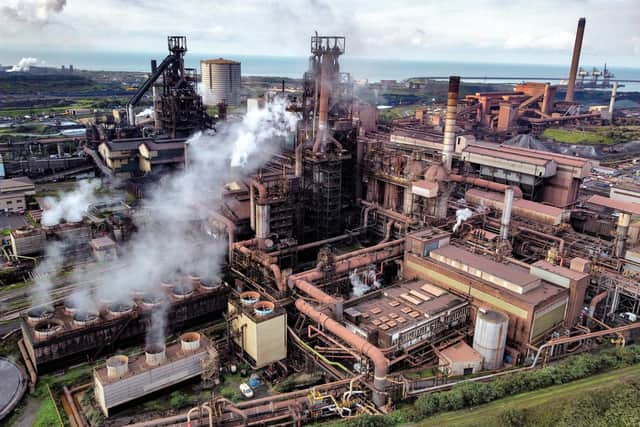Green technology isn’t destroying jobs, it’s the naïve faith in market forces - Andy Brown
When computers were first introduced many people thought that they would result in mass unemployment. In actual fact employment levels increased significantly.
Almost no one understood in advance the nature of the new jobs that would emerge. There are a lot of people employed in creating computer games, providing digital services such as content for websites and in linking homes and businesses to faster broadband.
Advertisement
Hide AdAdvertisement
Hide AdThese jobs were simply unimaginable before technology transformed.


Left to their own devices, market forces will wipe out some jobs in some places and create new ones in others. If governments stand in the way of that transition, they are almost certain to fail. If they fail to help individuals and communities to prepare for and manage that transition, then they will fail every bit as surely.
During the miners strike most people took one side or the other. They either wanted to keep pits open or weaken the mining unions. Far too little thought was given about how to manage change in ways that enabled once proud communities to have a future.
Few miners were devastated to be told that they no longer needed to do hard shifts of work in dark dangerous and dirty conditions. They were devastated to lose employment and to see whole towns ruined by mass unemployment.
Advertisement
Hide AdAdvertisement
Hide AdNot enough was done to help those communities to adjust to change. Central government should have taken much more serious action to invest in economic improvements in areas where jobs were being lost. What was needed was a proper thought-out regional policy. What we got instead were lectures about the importance of trusting markets to send resources to where they were needed.
Left to their own devices, markets have shown a dangerous tendency to suck jobs and resources out of the North and fuel growth in London and the South East. Governments have a duty to have a clear economic strategy that ensures that this doesn’t happen again and there are good quality job opportunities throughout the country.
Instead of levelling up, much of the north has experienced levelling down. Instead of long-term plans being developed with careful thought, much of the little money that has been made available for regional policy has been wasted.
Local councils have been forced to bid for short term project funding. That has resulted in schemes being devised in a rush with a focus on sound bites that will gain the support of Ministers. Some of those Ministers have directed funds to their own constituencies or to marginal ones instead of focusing on where the need is greater. Short term headline grabbing ideas tend to win funding. Sensible sustained long term investment programmes less so.
Advertisement
Hide AdAdvertisement
Hide AdSuccessful economic development brings together good quality economic planning and innovative private enterprise. That combination is what has transformed China from being an economic backwater to the world’s most successful manufacturing centre.
We cannot stand in the way of new technology, but we can plan for it more intelligently. Even most steelworkers in Scunthorpe and Port Talbot are likely to recognise that plants need modernising and there is a limit to the time that they can be run using fossil fuels. That doesn’t mean that they should be expected to give up on their and their community’s economic future.
It is right to invest in electric steelmaking and to set up that industry for the next phase of technology. It is wrong to force skilled people to leave town if they want to find work.
Communities like Scunthorpe cry out for a major investment programme in diversifying the range of employment opportunities that are available. They have a wealth of talent and a very adaptable workforce. If jobs are going to be destroyed in this community, then the government needs to help to create new ones.
Advertisement
Hide AdAdvertisement
Hide AdThere is a myth that green technology destroys jobs and exports manufacturing to China. What does that is bad management of change and a naïve faith in market forces.
Britain will never prosper if it tries to build a future by focusing on fossilised ideas and fossilised technology. It can build a successful future if it is first to adapt to new ways of doing things.
We need a proper long term industrial strategy and major investment in areas where change is bringing risk. This country can’t afford to make the same mistake over the transition to a green economy that it did when we closed the coal mines.
Andy Brown is the Green Party councillor for Aire Valley in North Yorkshire.
Comment Guidelines
National World encourages reader discussion on our stories. User feedback, insights and back-and-forth exchanges add a rich layer of context to reporting. Please review our Community Guidelines before commenting.